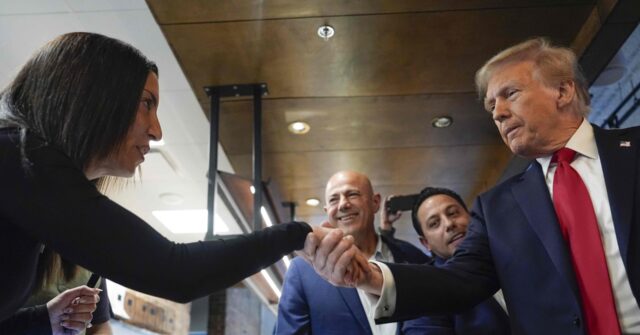President Joe Biden expressed support for the newly-implemented ceasefire between Israel and Lebanon, highlighting the intricate interplay of various political factors influencing this development. This ceasefire aligns with a pivotal campaign promise made by President-elect Donald Trump, who assured Arab and Muslim voters of an end to the ongoing conflict in Lebanon. Key figures, such as Massad Boulos—Tiffany Trump’s father-in-law—bolstered Trump’s commitment to pursuing peace in the region, signaling a shift in expectations among Arab nations regarding potential diplomatic resolutions.
Biden’s administration encountered challenges in securing the ceasefire, which involved complex negotiations regarding the role of Hezbollah and the actions of Israel. Initially advocating for Israel to withdraw from the border area despite Hezbollah’s provocative actions, Biden faced difficulties in achieving a consensus. Notably, in a significant escalation, Israel executed a targeted airstrike that killed Hezbollah leader Hassan Nasrallah, an action that complicated diplomatic efforts. Concurrently, Biden’s administration, alongside French President Emmanuel Macron, had been working towards a ceasefire agreement, reflecting the intricate diplomatic maneuvers occurring at the time.
The dynamics of the conflict shifted considerably in light of Israel’s military engagement and the looming electoral change in the United States. Israel’s unexpected display of military strength created an environment conducive to negotiations, impacting the willingness of both parties to reach a broader agreement. Furthermore, Trump’s impending presidency altered the strategic calculations for both Hezbollah and Iran, as they perceived potential changes in U.S. foreign policy that could empower Israel on the battlefield. This environment of uncertainty regarding future U.S. actions contributed to the urgency for a ceasefire from all involved parties.
A crucial variable in the sustainability of the ceasefire will be Iran’s capacity to re-arm Hezbollah in the aftermath of this agreement. Trump’s fixation on re-establishing sanctions on Iran, reflecting a “make Iran broke again” approach, poses significant implications for the conflict. Should these sanctions effectively limit Iran’s support and resources for Hezbollah, it could lead to a more stable peace arrangement in Lebanon. The maintenance of this ceasefire, therefore, hinges on the broader geopolitical dynamics at play within the region and the influence that external powers exert on local actors.
While the immediate cessation of hostilities may represent a diplomatic achievement, the underlying tensions remain unresolved, necessitating a cautious outlook toward the future. The durability of the ceasefire is not guaranteed, as historical patterns in the region suggest that fragile agreements can quickly unravel if underlying grievances are not addressed. The ongoing ability of Iran to support Hezbollah remains a critical factor in determining both the short-term and long-term stability of the arrangement. Observers and stakeholders in the region will need to monitor these developments closely to anticipate the trajectory of the conflict.
The discourse surrounding the ceasefire encapsulates the complex interplay of domestic and international politics, illustrating how individual leadership decisions can cascade into significant geopolitical shifts. Joel B. Pollak, a Senior Editor-at-Large at Breitbart News, emphasizes these nuances as he engages with the broader narrative of Trump’s political legacy and its implications for future U.S. foreign policy. As the situation unfolds, it will be essential to assess how both the Biden administration and the Trump-aligned framework navigate the prevailing challenges to foster enduring peace in Lebanon and the broader regional context.

